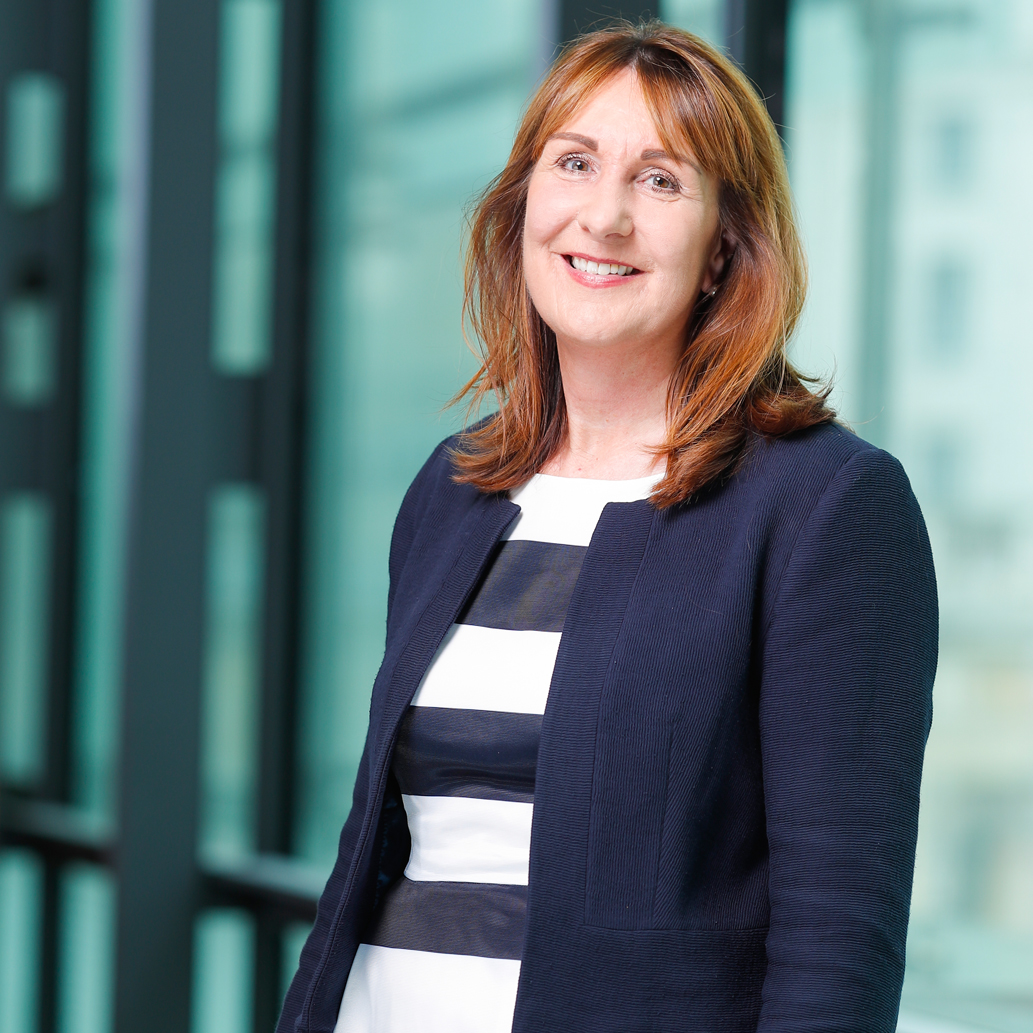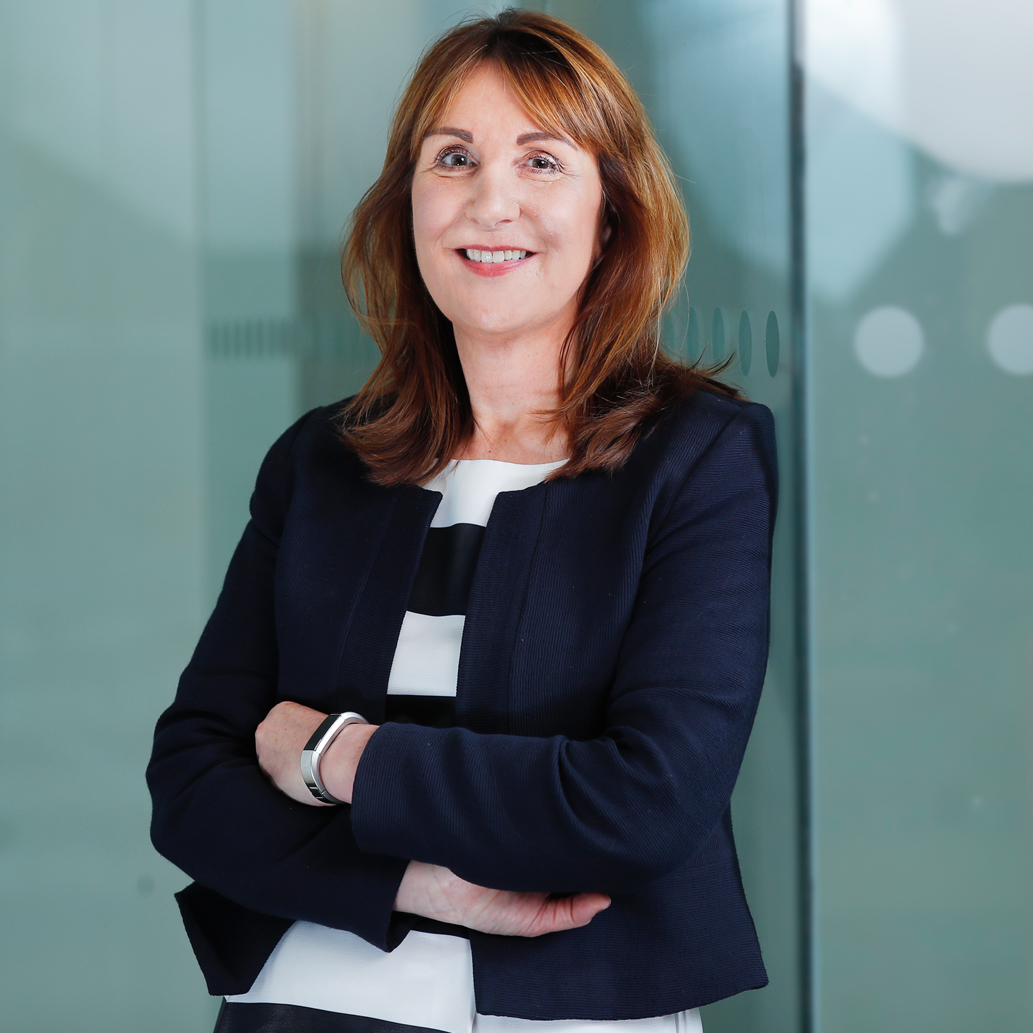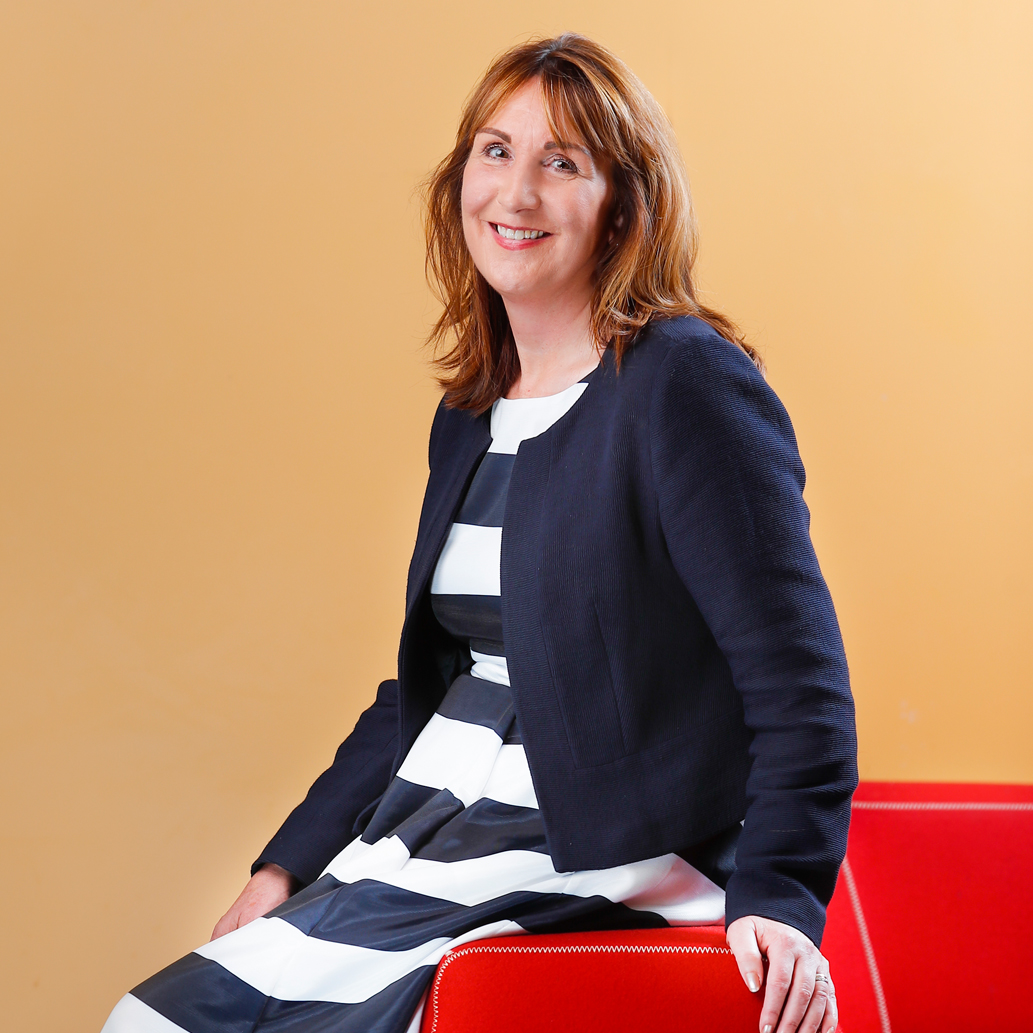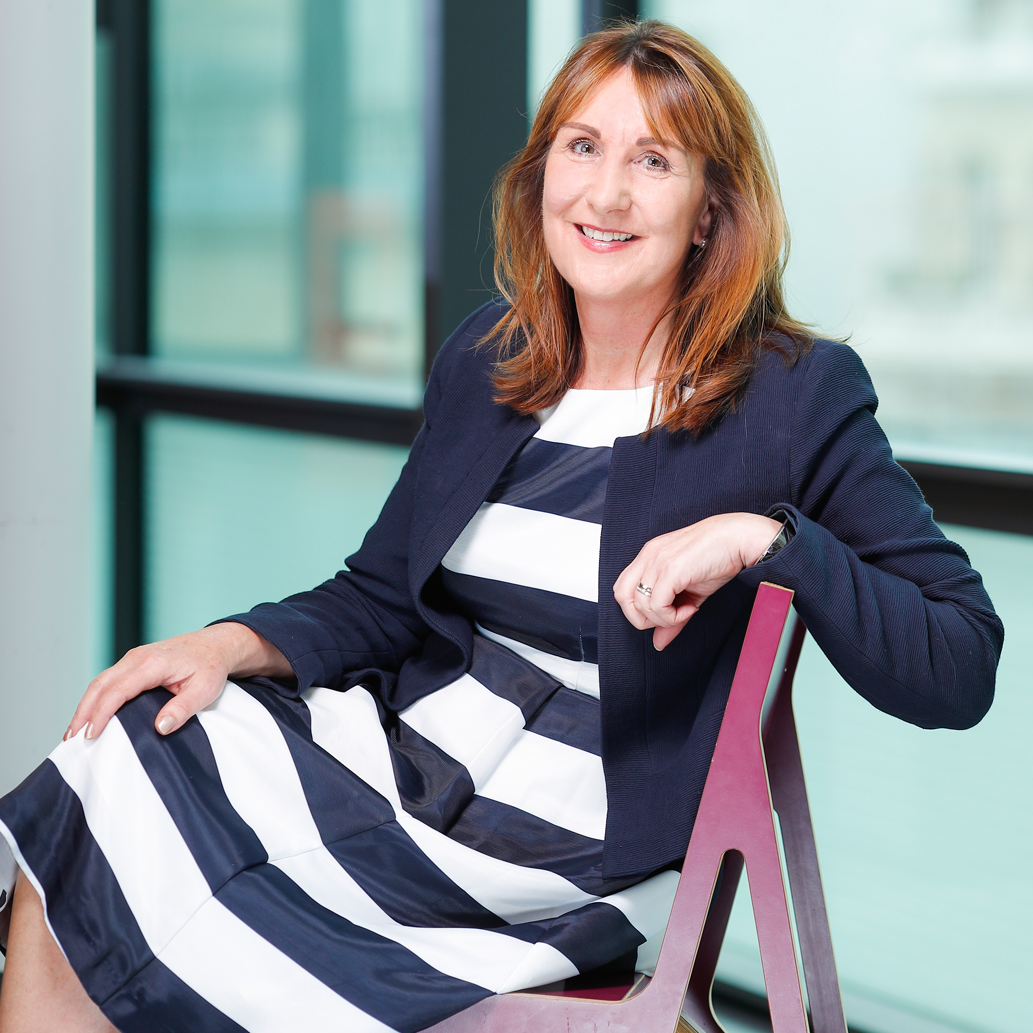Valerie, tell us about your early life and why you decided on a career in HR.
My early childhood was spent in Wales, but during my senior school years we lived in Nottingham. I remember it was my 16th birthday when I started working on Saturdays on the checkouts at the local Sainsbury’s. Then quite by surprise, after a few weeks I had the opportunity to move to work in the personnel department – preparing pay packets and working out staff rostering. So the seed was sown for what has been my HR career ever since. I left school and went to the University of Birmingham to study for a business degree, but with a focus on employment law and psychology that I thought would stand me in good stead. Then on graduation I joined Selfridges in Oxford Street on a graduate training scheme, and this took me to the world of stationery, the Christmas department – great fun – and then onto the DIY department, where, amongst other things, I could be found mixing paints! Several months later a vacancy came up in the personnel department at Selfridges and I successfully applied, and this was a great learning background as part of a small HR team in a busy and vibrant retail environment, with high volume activity and lots of interesting employee challenges.
A couple of years on and, with a Dutch boyfriend, I moved to the Netherlands and joined a company called EDS, a pioneer in IT services, which has now been acquired by Hewlett Packard. The role was more senior but specialist and focused on European recruitment. Just as I joined, EDS had won a major contract with General Motors to run the IT for all its car plants, meaning that across Europe we had to TUPE transfer and recruit extensively, establishing IT departments under the EDS banner. To all intents and purposes it was a start-up, and we had to hit the ground running. I was definitely thrown right into the deep end and travelled to many different countries, where I quickly had to learn about different cultures, employment practices and trying to decipher CVs in a variety of languages. It was a very hectic time but fantastic experience that led to being offered the role of Head of European Reward a couple of years later. Initially, l had doubts about taking on another specialist role, but I had a really great mentor who advised me that if I was serious about building a strong HR career, I needed to have in-depth specialist experience in a number of different HR areas, and Reward, he insisted was key. To this day I am extremely grateful for his guidance, as I learnt so much in a world of complex share schemes, pensions, benefit programmes and pay and grading structures. After four years living and working in the Netherlands I moved back to the UK and eventually became UK HR Director for EDS, also managing a Pan-European programme re-engineering HR processes and implementing what I think was the very first SAP HR implementation across Europe – working with the German SAP consultants on designing workflows and panels. By this time, I had two very young children and was finding the constant travelling to America and various parts of Europe tough. So I decided I needed a role that enabled me to juggle a career and motherhood, and I joined a company called Xansa – now acquired by SopraSteria – working directly with the HR Director three days a week.
Xansa was a pretty unique organisation having been founded in the 1960s by Dame Stephanie Shirley, and prided itself on providing flexibility and a culture that supported working women. I was primarily involved in managing HR operations and setting up the first HR shared services centre. I also worked my way through countless TUPE transfers as we won numerous outsourcing contracts. Initially, the work was in the UK, but we soon acquired a business in India and I spent many years travelling to; Delhi, Chennai and Pune, as we grew the offshore business and migrated much of the work there. This included running HR services for some of our clients from India. After a few years and a third child, I became Group HR Director for Xansa and spent a number of really enjoyable years there as part of the Executive team. Things changed though in 2007 when the organisation was acquired by SopraSteria – a French listed organisation. Having previously always been on the side of companies that had acquired other organisations it was quite emotional to suddenly be acquired myself and see all but one of my Executive colleagues leave. I could however see the real synergies and being involved in the due diligence and integration was great experience, and I was overjoyed to be offered the role of Group HR Director of the new organisation, with 20,000 people across 16 countries. I really enjoyed the integration experience, but personally the job took its toll, as I was working three days a week in Paris, leaving my three young children back at home. After just over a year I decided I couldn’t carry on and for the first and only time in my career made the decision to step away from a role with no other job to go to.
For a few months, I thoroughly enjoyed being a stay at home mum, but was then approached by Amey, the UK support services organisation, to take up the Group HR Director role. Rapid growth was the plan and it was a culture I could really relate to, with a massive and diverse range of employees, ranging from; cleaners at Heathrow airport to road maintenance workers and very specialist civil engineers. During the five and a half years I was there, the organisation tripled in size through TUPE transfer and acquisition to about 20,000 employees. There were so many proud achievements for me with the HR team, but the stand out was establishing from scratch an apprenticeship programme that grew to over 200 apprentices, particularly as they came from diverse and challenging backgrounds. They each undertook The Duke of Edinburgh Gold award scheme as part of the programme. Then, out of the blue, I was approached by the BBC.
This was soon after Director General George Entwistle had resigned after only 90 days over the handling of the Savile scandal and the corporation and indeed HR itself was caught in a media maelstrom unprecedented in the BBC's history. The challenges were there for all to see.
I was surprised to have been approached to see if I was interested in applying for the job as I had no media industry background, but I was fascinated and curious to understand more. After hearing what the challenges were, and meeting Tony Hall, the new Director-General, and the other Executive members, I really felt that these were people who shared my values and who I could work with. Although very conscious of the public scrutiny the organisation comes under and personally being in the public eye, I took the leap and joined as we were starting to prepare for the new Royal Charter negotiations. There was a great deal of work to be done in three main areas. Firstly, we needed to redesign the organisation structure and reorganise to best deliver our strategy and, at the same time, deliver savings efficiencies. Particularly key was that we were able to show how the BBC was delivering value for money to licence fee payers.
There was a driving need to look at the culture throughout the corporation, particularly focusing on diversity and inclusion, and ensuring the BBC is a place where people can do their best creative work. After what had been a period of disruption and negative media, the challenge was considerable and a good deal of relationship building needed to take place – not least with the trade unions – to regain trust. So, top of the agenda was building an open and transparent culture where people could be confident about speaking up, knowing that they would be heard and that action would be taken. We developed a code of conduct, reviewed all our policies and practices and ran regular staff “speak up” campaigns so employees were aware of the best way to raise an issue. The third area for immediate action was to hold a root and branch transformation of HR itself, which included moving most of the HR function to Birmingham from London. This was part of the drive to have the BBC represented around the country – breaking the London centric profile – with a target of having at least 50 percent of our total staff based outside of London. The Academy training centre has now moved to Birmingham, along with the HR specialist functions, and a new HR service centre has been set up there. Another challenge on the radar was cost saving, as I had been tasked with reducing the cost of HR across the organisation by 20 percent. We managed to achieve closer to 30 percent, much of which was down to a new HR operating model with an appropriate mix of insourced and outsourced services. Some 60 percent of the HR team are new into the organisation over the last four years, and so it has been quite a change.
How are the technology and consumer demands challenging the way the corporation operates and how is the business changing to be a major competitor for the future?
It’s a fast-moving world in the media space – we all know that – and, of course, we’re not talking about tweaks and adjustments here and there. We’re looking at fundamentally reinventing the BBC for the next generation. We’re developing BBC iPlayer to change it from being a catch-up service to a destination in its own right, and have recently launched a new app, BBC Sounds, which brings our live and on-demand radio, music and podcasts into a single personalised app. Audiences are increasingly consuming media in very different ways, and so inevitably the organisation is growing more reliant upon digital skills right across the board. In HR, we’re finding recruitment is becoming ever more competitive and ensuring we have a strong pipeline of talent with the right technical skills is really important, and that’s why we’ve recently announced a new Design and Engineering Hub in Glasgow, joining the two we have in London and Salford. Elsewhere, our BBC training Academy, provides courses enabling journalists, who in the past would have been teamed up with an entire crew, to be self-reliant in reporting the news. At the core of your question about competing in the future, the fundamental component is content and how that is accessed and consumed. Of course, the BBC has a strong heritage in news, and when you consider the massive competition, the driving technologies and the threat of fake news, the BBC maintains a reputation for integrity. When you look at creative content, however, the competition is obvious. We’re competing against the likes of Netflix, which is predicted to spend between seven and eight billion dollars on content in 2018. But that’s why the BBC and public service broadcasting is so important, to ensure we’re bringing audiences content that showcases the very best of British creativity and stories.
The way the BBC receives its revenue, via the Licence Fee, is unique. How much does this influence the way you operate?
The BBC is itself is unique! No other media corporation provides the multitude of platforms and depth and breadth of content. When it comes to the licence fee, we are always accountable and we always have to prove our case. We’ve taken out layers of management and halved management numbers across the BBC as part of the drive to be as efficient, cost effective and accountable as possible. We have also worked hard to reduce spend on professional services and supporting activities to less than six percent, leaving 94 percent to be spent on the content and the services our audiences expect and love. In terms of the revenue model, and as part of our drive to reinvent the BBC, we’ve transformed our TV production arm into a commercial subsidiary, BBC Studios, to help it boost the licence fee with additional income. Last year, it merged with our international sales and distribution company, formerly-known as BBC Worldwide, to enable us to operate at a similar level to other studios and distributors. It also means we have more opportunities to grow and exploit IP for the BBC. However, there’s no doubt that there are still challenges ahead. Whilst the BBC delivered over £1.6bn in savings over the last Charter period, we still have to find £800m by 2021/22. We’ve made significant progress with £244m savings to date but there are still tough choices ahead.
Has there been much resistance to all this change? Do you feel HR itself has changed since you joined to become more integral within the organisation?
Yes, absolutely! We are here in HR as an integral part of the BBC, providing support and services to enable the contributions of our people to be maximised. No matter what the business, for HR to function with integrity and impact, you have to have strong operational foundations in place and an HR team willing to fully commit to the organisation and to working together. Building this has been one of the key challenges – but I feel we’re in a place now where we can work with great insight across our diverse workforce and dynamic platforms and services. We have spent a lot of time simplifying the organisation – complexities and legacy terms and conditions issues had remained unchecked for years – when I first arrived, we had about 6,000 different job titles for our 21,000 employees. Somebody might have been called a “Project Manager” being paid £25K whilst another “Project Manager” could have been paid not far off £100K say. Clearly, they were not doing the same job so one of the first things we needed to do was provide employees with a simple, transparent and consistent framework for progressing their career within the BBC. We have now achieved that with the introduction of a Career Path Framework, reducing the number of job titles to around 600 and assigning each role in the organisation to a job family and a career band – with six broad bands replacing the old 16 grade system. Each band has a pay range and, within that, each job has its own market-informed pay range. Everyone knows the pay range for their job and, where there are more than 20 people with that job title, they can also see where they sit within the pay range compared to their colleagues.
Over the last couple of years we have also extensively reviewed all the Terms and Conditions of employment in the BBC to modernise them and ensure they are fit for the future. The programme of change has included; reviewing contracts, working patterns, pay and benefits and policies. Our employees are covered by union collective bargaining agreements, so we have worked jointly with our unions – NUJ, BECTU and Unite – to come up with new terms that are simpler, fairer and more consistent. After many months of joint working, we reached a point in May of this year where we had an agreed set of proposals that both the unions and management would support. Our employees were then invited to vote on the proposals through union ballots and all the changes were successfully approved.
What would you say are the next challenges on the journey?
There is more to do around our culture, making sure the BBC is a place where people can come to do their very best work. Inclusion and diversity are central to our vision, and we have set ourselves some robust 2020 targets on representation and on closing our gender pay gap. The latter was 9.3 percent in 2017 and so far has dropped by a fifth and is down to 7.6 percent – lower than most media organisations. Over the last few months, we’ve been undertaking several reviews, looking at culture and career progression for women, BAME, disabled, LGBTQ+ staff, and those from different social backgrounds. The women’s review, which we recently published, had over 5,000 comments and ideas put forward. We’ve accepted the recommendations and are now implementing them – for example doing all we can to support flexible working requests, addressing our recruitment processes to create more opportunities for development and ensuring the process is free of bias and that managers are fully supported with increased training.
The BBC is the epitome of a media goldfish bowl, how do you stay focused?
It is the reality that we are under a great deal of scrutiny, and the press are always on the hunt for a story. You have to be resilient and confident that what you are doing is right – and be able to sleep at night knowing you are doing the best you can. It helps that I work with a great team who share a strong belief that sound measures will lead to continuous improvements. Of course, there are things that happen that you have no control over, but you can’t operate constantly feeling paranoid and fearful.
If you were to hope for one thing in the next three to five years, what would it be?
We want a culture of continuous innovation where everyone works together on shared objectives and targets and where artificial barriers are removed. We have our ambitious diversity targets for 2020, but I’d like to see us reach a time where we don’t need to talk about diversity, and instead are focused on an inclusive culture for all. We want everyone at the BBC to be able to fulfil their potential, and do the best work of their career. It’s good for our people and it’s good for our audiences to have a BBC that delivers the very best creative and diverse programmes and services.












